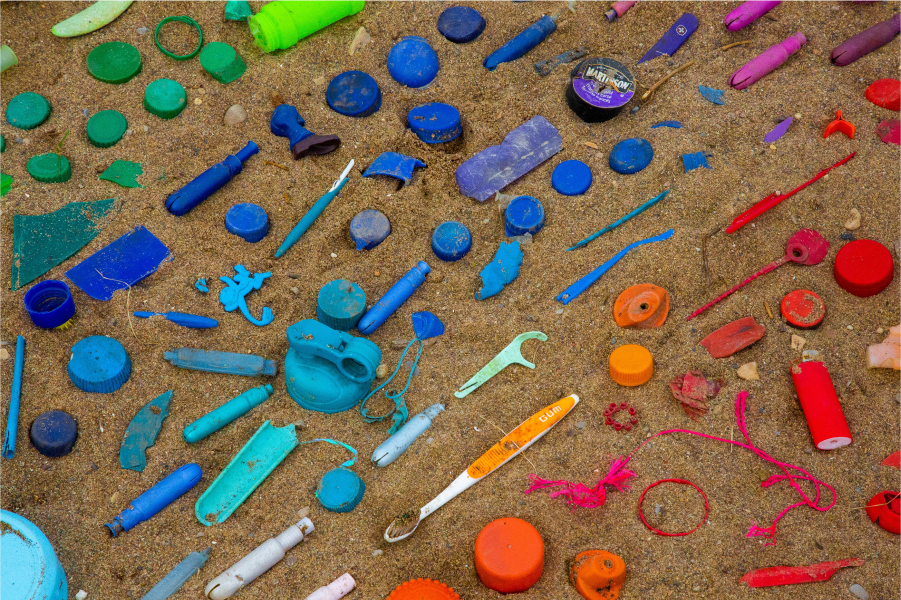How plastics can be part of the European sustainable vision?
The Plastic sector is a vital European industry which is giving millions of jobs to the old continent workers. Nevertheless, the way in which plastic is produced and consumed is no longer fitting with the sustainable vision of the twenty-first-century industry. Along with the digitalisation, the industry must face a major transformation.
Tupperware came to life a year after the second World War as a symbol of the American way of life. Back in 1933, polyethylene, the base of the product was created. The plastic century started its path thanks to technological innovations and allowed for higher profits for corporations.
In the late 1960s, the French company Vittel created a bottle of water made of plastic. Ten years after, 60 million tonnes of plastic were produced, and today, an estimation of 13 billion a year of damages are made to global marine ecosystems. Today, plastics are everywhere. However, in Europe, the industry is an important source of profit and generator of jobs, it has to find a way to become sustainable and digitalise itself. Transformation is questionless, technology and other actions could help.
Europe generates nearly 26 million tonnes of plastic waste
Plastic production comes from petrochemicals and petroleum. Plastic is usually used once and then thrown away for possible recycling.
In the world, 500 billion plastic bags are used each year, or 10 million per minute. The European Union, which consumes 49 million tonnes of plastics, has a recycling use rate of around 6%, or just under 3 million tonnes. The European Commission estimates that Europe generates nearly 26 million tonnes of plastic waste: 31% is recycled (in Europe or elsewhere, as in China, which imported waste until 2017), 42% is incinerated and 27% end up in landfills.
Today, 60% of plastic products and parts have a use phase between 1 and 50 years, or even more. This lapse of time determines when they will potentially become waste.
Without taking any actions, the annual global production of waste will increase by 70% to 3.40 billion tonnes by 2050.
The plastic industry, an economic booster for Europe
There is over 1.56 million people in Europe employed in the value-chain composed by the plastic raw materials producers, plastics converters, plastics recyclers, and machinery manufacturers. More than 55,000 companies, most of them SMEs, are operating in all European countries.
In 2019, these companies created a turnover of over 350 billion euros and contributed more than 30 billion euros to European public finances and welfare. In terms of plastic demand, almost 40% is intended for the packaging sector, 20% for building and construction, and 9,6% for the automotive.
Furthermore, since the COVID-19 pandemic started, the industry has demonstrated its capacity to produce in a short time, single-use products to face the large demand for protective equipment such as gowns, suits, gloves, masks, face shields, safety goggles, oxygen cannulas, viral filters for respirators, catheters and so on.
It is doubtless, that the seventh European industry in the value-added contribution is essential for Europe’s economy and for its future, but the environmental issues have pointed towards an industry that will have to transform the way its products are designed, used, produced and recycled.
One of the challenges that will have to tackle the industry is the European Union’s (EU) single-use plastic ban. According to the European Commission, the producers will now have to cover the costs of waste collection and treatment, along with litter clean-up and awareness-raising. Nowadays, the 10 single-use products more often found on Europe’s beaches and seas represented together 70% of all marine litter.
The European strategy to renovate the plastic industry
In January 2018, the European Commission (EC) published its “plastics strategy”. The goal is to incorporate 10 million tonnes of recycled plastics into new products by the –very short – the horizon of 2025. The specific vision for a circular plastics economy is to promote investment and innovative solutions and turn the many challenges into opportunities.
Rules and laws on waste are already in place such as the Plastic Bags Directive adopted in 2015. However, the Commission insists on the fact that to leverage the transformation of the industry, the whole society must take part in it.
To overcome the Plastic industry issues, EC proposes to improve the economics and the quality of plastics recycling by rethinking the design of the products, making progress in the separation of the collection of the waste but also renovating the recycling and sorting capacity and finally create markets’ opportunities.
Prevention and consciousness about microplastics are other important tasks for the industry and society to overcome. But most important is the innovation, which represents a key enabler for the transformation of the plastics value chain. Investing in research in that sector could also help to reduce European dependency on Petrol.
Concrete actions will be taken or are already on their way in Europe but in the rest of the world, plastics grow quickly too, therefore international standards must be developed and promoted.
Alternative solutions for Plastics
Could the solution come from the plants? According to Zachary Bogue, managing partner at Data Collective Venture Capital, by 2030 we’ll grow plastics and other materials from plants: “Genetically engineering plants to synthesize chemical compounds opens up a design space exponentially larger than petroleum, to create new materials that will let us live more sustainably and propel the economy forward” (MIT Technology Review).
An alternative way of producing plastics could be one of the solutions to transform the industry into a sustainable sector. Meanwhile, initiatives like Precious Plastic try to reduce plastic waste by calling to the people’s collaborative thinking.
The Plastic industry in Europe is an influential sector for the economy, but its transformation is bound to happen since its impact on the environment is getting major every day. The European Commission is looking for changes but admits that all the stakeholders must follow the vision of a circular economy.
Long-term solutions can be found in the research on alternative ways of producing plastic but short-time actions are an emergency to avoid the Earth being transformed into a huge plastic container and to convert a strong industry into a sustainable one that fits the twenty-first-century vision.
Article by Marjorie Grassler – In-House Consultant at Mobile World Capital Barcelona

